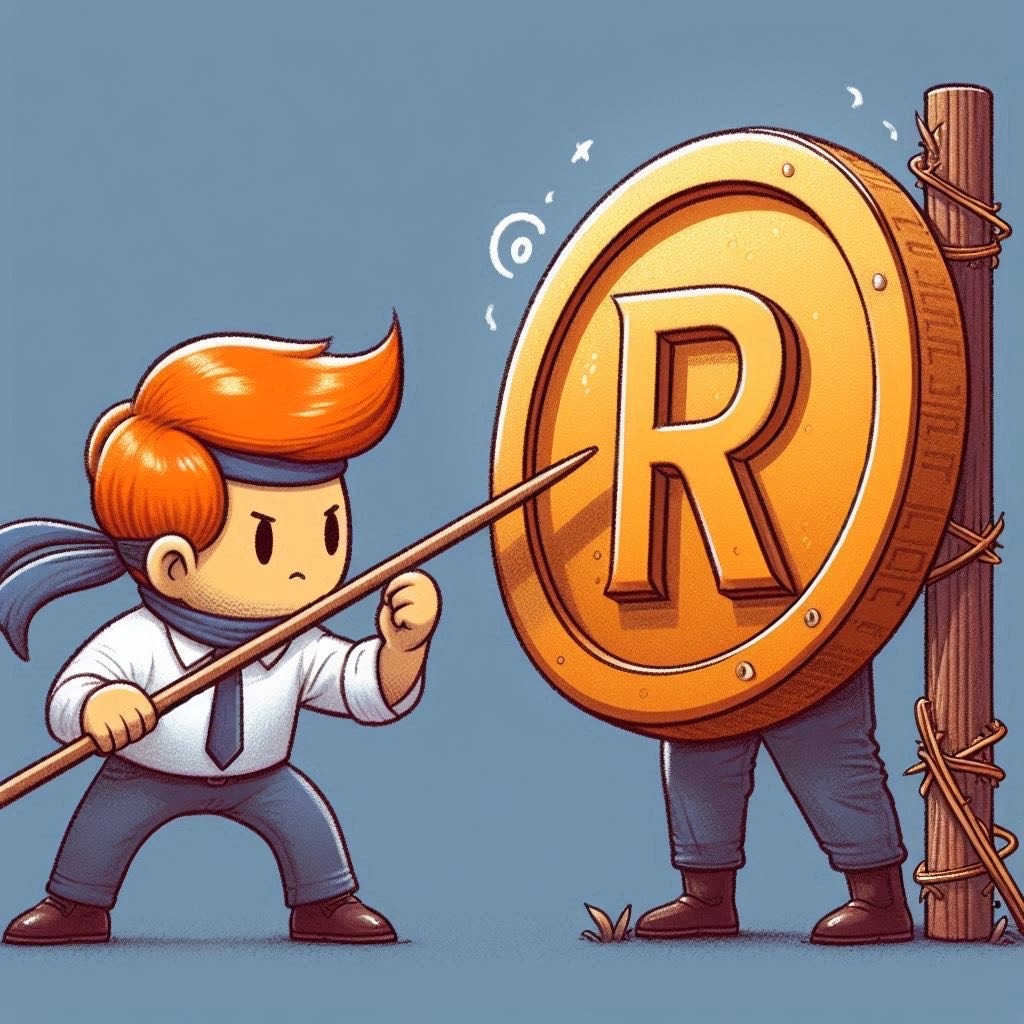MARKET PERSPECTIVE
By J Mulraj
April 5-11, 2025
There will be consequences for the tariff war launched by him
Image created by Bing.
Donald Trump has launched a destructive trade war using what he calls ‘reciprocal’ tariffs. The tariff rates are, it is believed, calculated in a manner which, if collected, would offset America’s trade deficit with that country. There’s no reciprocity in the tariff rate; it is not based on a rate imposed on US imports into the other country. This is concluded by US’s refusal to accept the offer of Vietnam to reduce it’s tariff rate for US import to zero! Peter Navarro, senior councelor to Donald Trump for trade and manufacture, cited ‘non tariff barriers’ as the reason to reject the Vietnamese offer. What, then, explains the reasoning for launching an insane tariff war, with the two largest world economies imposing over 100% tariffs on each other? Who will pay 100% tariff? The seller can’t afford it; no business has those kinds of margins. And if at all the buyer pays it, inflation would soar.
Perhaps the impetus has come from Steve Miran, Chairman of Council of Economic Affairs, who expressed his thoughts in this paper. Miran maintains that the status of the US$ being the sole internationally accepted currency, (after the post WW 2 Bretton Woods Conference) was not, as described by the then French President, “an extraordinary privilege”. Rather, the US has provided the world with two advantages. One, a global security umbrella, creating for the world, as he puts it, “the greatest era of peace mankind has ever known (sic). Two, America provided the dollar and Treasury securities which made possible the global trading and financial system that created global prosperity.
He goes on to demand that the world has to pay for both the above benefits bestowed by USA. Other countries can pay by:
* accepting higher tariffs without retaliation
* stop non tariff barriers
* increase defense spending
* invest in factories in USA
* buy US Treasuries
Let us examine his arguments.
The global security umbrella, creating the greatest era of peace the world has ever known: Actually, since the 1944 Bretton Woods accord, the US has been involved in the Vietnam war, the Korean War, the Gulf war, the Afghanistan war, the Iraq war and others. According to Trump himself, the Ukraine war and the Palestine-Israel war wouldn’t have commenced under his Presidency, hence the US, under Biden, was involved in allowing them. Both are ongoing conflicts. So, terming it the greatest era of peace the world has ever known is stretching it quite a bit. In fact, the US was the first, and only, country to use nuclear weapons.
Providing the USD and Treasury Securities which make possible global trade and prosperity: Global trade as a % of GDP has risen from 26% in 1971 to 59% in 2023. The rise in global trade began in the 70’s, led by advances in computational and communication technologies. And by the Nixon shock of 1971, when he reneged on the Bretton Woods promise to exchange the USD for gold, at a fixed rate of $35/ounce. This turned the USD into a Fiat currency which, combined with the extraordinary privilege of being the only globally accepted currency, permitted USA to live beyond its means (trade deficits) without fear of inflation.
Now, in response, some countries are responding, notably China. China has launched a full scale, cross border, digital payments system, based on blockchain. Ten ASEAN and 6 Middle Eastern countries, accounting for 38% of global trade, have joined. This is an alternative to the US dominated SWIFT system, one that gives the US the ability to threaten countries with sanctions. It is far more efficient in transmitting funds across borders, taking 7 seconds to transfer, compared to the 3-5 days taken by SWIFT. So, should more countries chose to join, the ability of USA to impose sanctions gets diluted.
Yaris Varoufakis, the erudite former Finance Minister of Greece, feels, however, that Trump will win the tariff war and explains it well here.
In the US, a disturbing trend is the fall in bond prices, which is perplexing at a time when equity markets are falling, due to uncertainty of the tariff war. Normally when equity markets drop, there is a flight to safety to bond markets, causing a rise in prices. See this video in which you tuber George Gammon talks about a likely $2 trillion bailout for some hedge funds by the Fed. Their bets went wrong, leading to margin calls. Without a bailout, they will be unable to meet the calls. They have been meeting the calls thus far by selling bonds; hence the drop in prices. Without a bailout, there could be another 2008 type global financial crisis. But giving a bailout is a moral hazard, encouraging wild behaviour by funds knowing they’d be rescued. The $2 trillion infusion would also lead to more inflation.
It seems that, given the size of the US economy, and given the impotence of global institutions like WTO, UN and others, who were meant to act as arbiters in international disputes, Trump will exert enough pressure to ultimately achieve whatever he wishes to achieve. Multilateralism will give way to bilateralism, with smaller countries negotiating with USA their own deals. It would take a few months, during which there would be more volatility due to uncertainties. Trump has paused the tariff hikes for ninety days.
Last week the BSE Sensex closed at 75157, for a weekly drop of 207 points.
Should the tariff gamble not succeed, if other countries join hands, and gravitate towards the renminbi based digital payments system, as depicted above, Trump’s dream of Making America Great Again may go through a modification.
Perhaps he would succeed in Making Americans Grate (their teeth) again!
Comments may be emailed to: jmulraj@asiaconverge.com










































COMMENTS